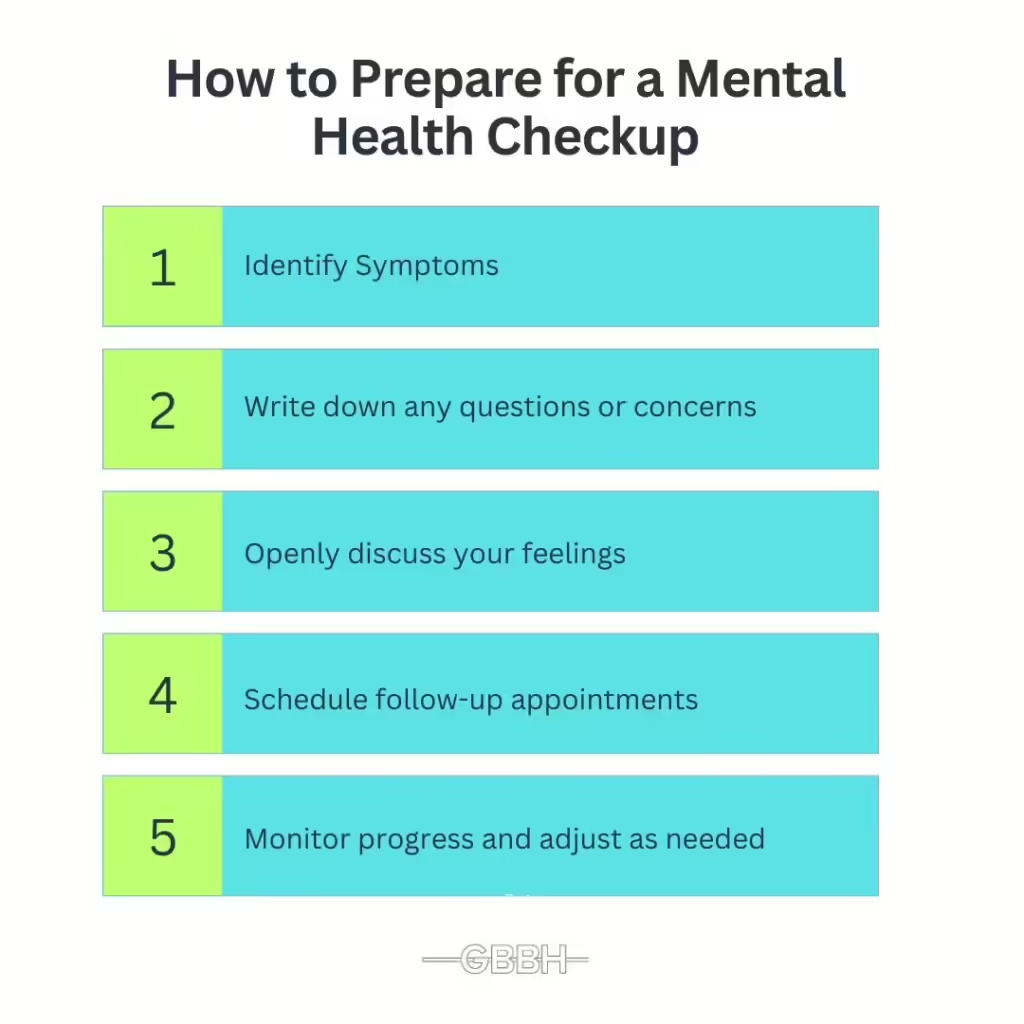With increasing stress from work, personal life, and global challenges, prioritizing mental well-being is essential. Regular mental health checkups, similar to physical health exams, play a crucial role in maintaining balance and ensuring that issues are identified and addressed before they escalate. In Massachusetts, various mental health programs and specialized mental health treatment centers offer tailored support to those in need. This article will explore the significance of mental health checkups and the therapy programs available to improve overall well-being.
Why Mental Health Checkups Matter
Mental health checkups are preventive measures that help individuals monitor their emotional and psychological well-being. Just as you would visit a doctor for a physical checkup to prevent diseases or catch them early, mental health checkups work similarly to identify potential psychological issues. Early detection is crucial because mental health conditions can worsen if left untreated, affecting not only the individual but also their relationships, work performance, and quality of life.
- Early Detection of Mental Health Conditions
Regular checkups can help identify early signs of mental health conditions, allowing for timely intervention. Conditions such as anxiety disorders, bipolar disorder, and depressive disorders may develop gradually, making it essential to catch them early. - Access to Appropriate Treatment
During checkups, mental health professionals can recommend effective treatment options tailored to individual needs. This may include evidence-based therapies such as cognitive-behavioral therapy (CBT), dialectical behavior therapy (DBT), or medication management. Early access to treatment can lead to better outcomes and improved quality of life. - Tailored Support
Mental health checkups allow professionals to create personalized treatment plans. Whether an individual requires outpatient programs, intensive outpatient programs (IOP), or specific LGBTQ+ programs, checkups ensure they receive the most suitable support. - Ongoing Monitoring
Regular appointments help monitor progress over time, allowing for adjustments to treatment as needed. This ongoing relationship with a mental health professional can help individuals stay on track and make necessary changes to their care. - Reduction of Stigma
By prioritizing mental health checkups, we contribute to normalizing mental health care. Open conversations about mental health can reduce stigma and encourage others to seek help when needed. - Support for Families
Mental health issues often affect not just the individual but their family and friends. Checkups can involve family therapy, helping loved ones understand the situation better and learn how to support the person in need effectively.
Regular mental health assessments help identify common issues like anxiety, depression, or stress, and provide an opportunity for timely intervention. In many mental health treatment centers in Massachusetts, professionals offer comprehensive evaluations, ensuring individuals receive the right support.
How to Prepare for a Mental Health Checkup
- Identify Symptoms:
Take note of any symptoms or changes in behavior that may have prompted the checkup. This can help the mental health professional understand your situation better. - List Concerns:
Write down any questions or concerns you may have about your mental health or treatment options. This will ensure you address all relevant topics during your appointment. - Be Honest:
Openly discuss your feelings, experiences, and lifestyle. Honest communication is key to receiving the best possible care. - Follow-Up:
If you’re prescribed a treatment plan, be sure to schedule follow-up appointments to monitor progress and adjust as needed.
Common Forms of Therapy
Mental health therapy is a critical component of addressing emotional or psychological disorders. Several therapy approaches can be used depending on an individual’s specific needs. Two of the most effective and widely used methods include cognitive-behavioral therapy (CBT) and dialectical behavior therapy (DBT).
Dialectical Behavior Therapy (DBT)
DBT is a more specialized form of therapy, primarily designed to treat individuals with chronic emotional regulation issues, such as borderline personality disorder. It emphasizes the importance of balancing acceptance and change, helping individuals develop skills for managing intense emotions, improving relationships, and enhancing their emotional well-being. DBT is also effective in treating mood disorders and suicidal behaviors.
Both CBT and DBT are widely available in mental health therapy programs across Massachusetts, with treatment centers offering these therapies as part of their comprehensive care.
The Role of Mental Health Programs
Mental health programs are designed to offer continuous support to individuals struggling with mental health conditions. These programs often include a range of services, from individual therapy sessions to group therapy and holistic activities like mindfulness and relaxation techniques. In mental health treatment centers in Massachusetts, such programs are tailored to meet the diverse needs of patients, providing them with personalized care plans.
Many programs also integrate family therapy, as the support of loved ones can play a significant role in recovery. Education and counseling for family members help them understand the challenges of mental health conditions, enabling them to provide more effective support.
Overcoming Stigma and Seeking Help
One of the biggest barriers to mental health care is the stigma attached to seeking help. Many people feel ashamed or embarrassed about needing therapy, fearing judgment from others. However, it’s important to remember that mental health checkups are a vital part of overall health, and seeking help is a sign of strength, not weakness.
Mental health checkups can help reduce this stigma by normalizing the conversation around mental well-being. When more people routinely check in on their mental health, it becomes a natural part of maintaining a healthy life. If you’re feeling overwhelmed, anxious, or emotionally drained, it may be time to consider reaching out to a mental health treatment center in Massachusetts for support. These centers provide a safe, non-judgmental environment where professionals can guide you through the healing process.
Conclusion
Mental health checkups are an essential tool in preventing and managing mental health disorders. With the right support, individuals can address issues early, improving their quality of life and well-being. Massachusetts is home to many excellent mental health therapy programs, offering treatment methods such as cognitive-behavioral therapy and dialectical behavior therapy to help individuals regain control of their mental health. Remember, mental health is just as important as physical health, and taking proactive steps to check in on your emotional and psychological well-being is vital for a balanced, healthy life.
If you or a loved one needs help, don’t hesitate to reach out to a local mental health treatment center and explore the mental health programs that can offer the support you need. Call us at (888)278-0716 today to learn more about our services and how we can help you on your journey to recovery!
FAQ: The Importance of Mental Health Checkups
What is a mental health checkup?
A mental health checkup is an assessment conducted by a mental health professional to evaluate an individual’s emotional well-being, identify potential mental health disorders, and discuss any concerns. These checkups can help establish a treatment plan tailored to the individual’s needs.
Why are regular mental health checkups important?
Regular mental health checkups are essential for early detection of potential issues, monitoring progress, and adjusting treatment plans as needed. They help individuals manage conditions such as anxiety disorders, bipolar disorder, and depressive disorders effectively.
How can cognitive-behavioral therapy (CBT) benefit me during a checkup?
CBT is a highly effective therapeutic approach that focuses on changing negative thought patterns. During a mental health checkup, a professional may recommend CBT to help you develop healthier coping strategies and improve your overall mental health.
What types of mental health conditions can be identified during a checkup?
A mental health checkup can identify various conditions, including anxiety disorders, depressive disorders, bipolar disorder, and more. Early detection can lead to more effective treatment and better long-term outcomes.
How do I know if I need a mental health checkup?
You may benefit from a mental health checkup if you experience persistent feelings of sadness, anxiety, mood swings, or difficulty coping with daily life. If you’re unsure, it’s always a good idea to consult a mental health professional.
What therapies are available after a mental health checkup?
Depending on your needs, therapists may recommend various treatments, including cognitive-behavioral therapy (CBT), dialectical behavior therapy (DBT), family therapy, group therapy, or medication management.


